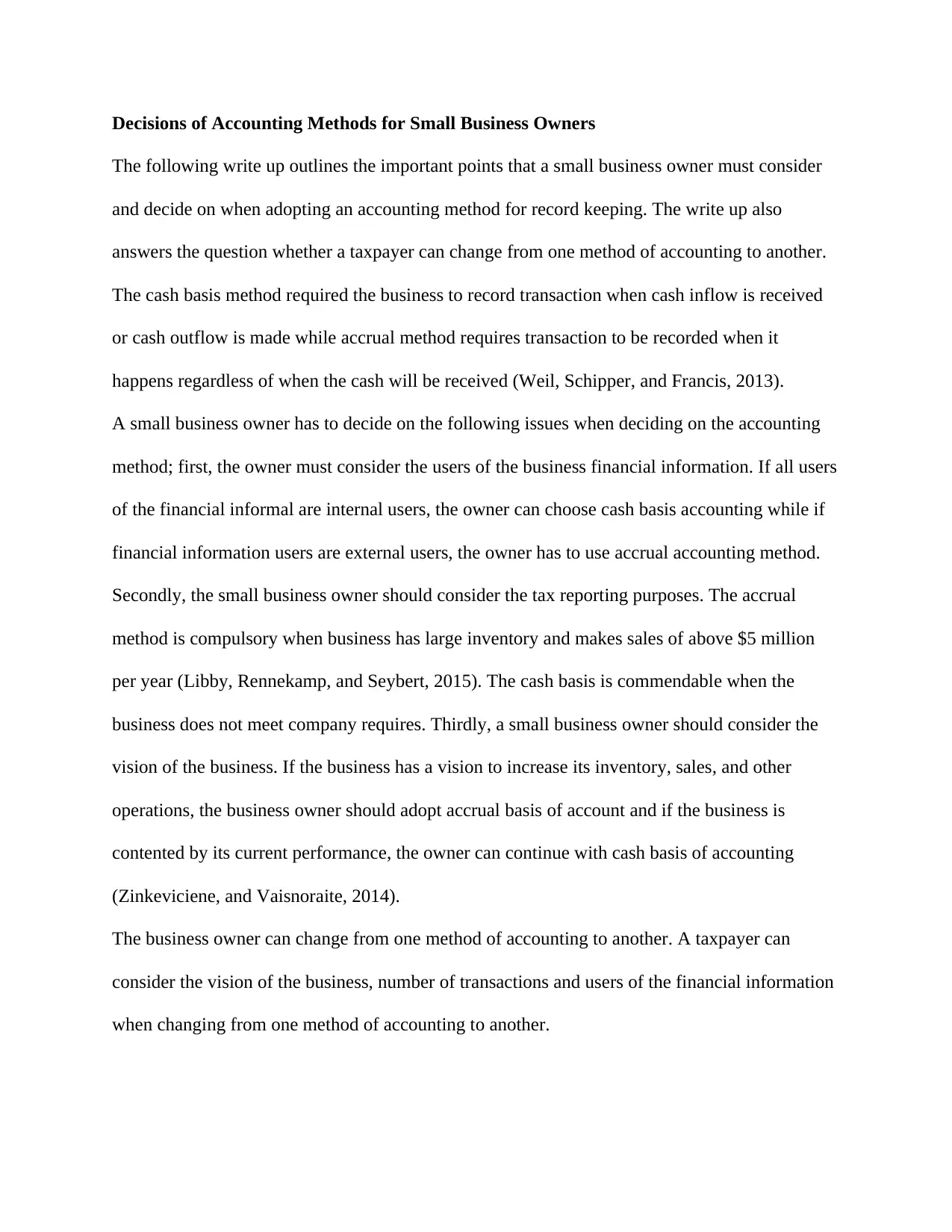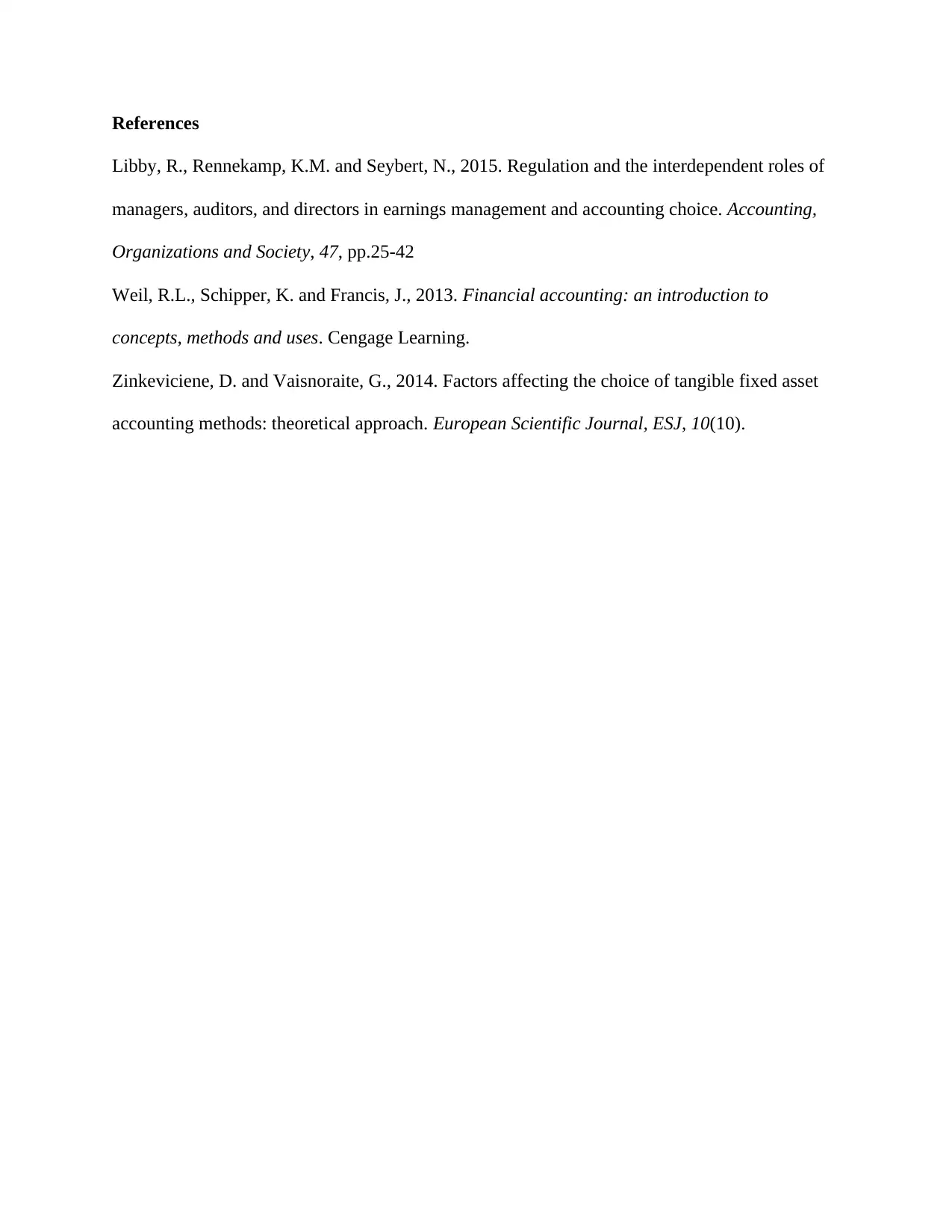Accounting Methods for Small Business: Choice of Accounting Method
VerifiedAdded on 2020/04/29
|3
|456
|85
Report
AI Summary
This report provides a comprehensive overview of accounting methods for small businesses, comparing and contrasting cash and accrual accounting. It discusses the factors that influence the choice of accounting method, including the size of the business, its financial goals, and the needs of its stakeholders. The report also covers the differences between cash and accrual accounting, and the impact of each method on financial reporting. The report highlights the significance of accounting methods and their impact on the financial health of a business, and emphasizes the importance of choosing the right method to accurately reflect the financial performance of a business. Additionally, the report explores the implications of changing accounting methods and the considerations involved in making such a decision. The report draws on research and provides insights that can help small business owners make informed decisions about their accounting practices.
1 out of 3









![[object Object]](/_next/static/media/star-bottom.7253800d.svg)